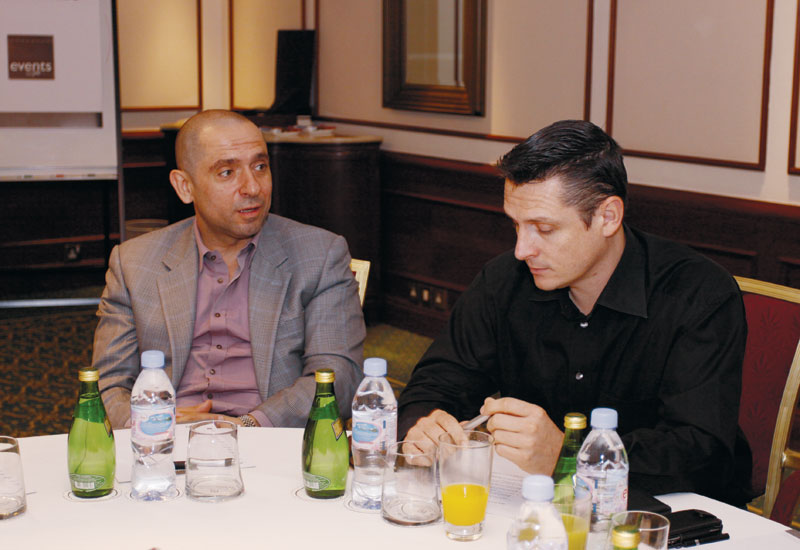What options are available for restaurants outside big hotel chains, with regards to food safety programmes?
Impiazzi: We’re using MenuSafe, which is fantastic because it gives control to the chef, not the hygiene officer. The guys in the kitchen are in absolute control of what goes in there.
It can also be geared towards specific menus, so although the programme runs on the same basics, the particulars gear down to each dish — which is great, because an Asian restaurant is going to be different to an Italian restaurant, for example. Plus the training covers every level of staff, which I believe is the way forward.
Antonio Bautista: My view is that training is number one; that is where I think most people fail miserably. We like to think we don’t. Accountability at the chef level is key, because the safety officer can only be in so many places at one time. The chef is the person who can really drive all those on-site checks and raise the red flag if something is wrong.
Muhammad Qamar: Looking at the issue of small businesses, when we talk about achieving food safety in the region, we cannot get there without this major section of the industry on board. Admittedly it will be very challenging for the legislators and the administration bodies to maintain a balance between all these F&B operators of different levels, but I think once that happens, the whole food safety level of the region will improve greatly.
Micheel: But we’re talking about a region where, just a few years ago, meat was delivered on an open truck and a supplier’s warehouse was just a building with a load of boxes on the floor and rodents running about. The supplier side has seen huge improvement; it’s one of the biggest achievements to date.
Hughes: It’s a question of resources though, because those of us here today are fairly big organisations, with quality assurance teams — but the little guy doesn’t have that; he won’t check his suppliers out.
Wills: But four- and five-star hotels are in a position to put pressure on all the warehouses, and that can change things for everybody.
Micheel: The problem is that following food safety often comes down to budgets. If the initiative is not supported from the top, by whoever’s holding the purse strings, there’s not a lot the little guy can do. And often, smaller businesses just can’t afford the costs.

Advertisement
Impiazzi: That’s where MenuSafe comes in, because it’s a fraction of the price. I did some research into HACCP and it cost thousands of dirhams. I think potentially some areas are overcomplicated, which makes it more expensive, whereas MenuSafe breaks things down so it’s a much simpler system to initiate.
Bautista: We have an internal programme which is not HACCP, because I agree that is over-complicated, and you get some consultant overcharging you to do something which is really common sense.
Our food safety officer focuses on making sure that the ‘owner of the restaurant’, as I call the guy who is there in the outlet every day, can take accountability and follow the simple steps. As long as you follow sensible rules, you’re fine. But I think it does come down to training too, because some people don’t understand basic stuff like cross contamination, or that food can’t be left outside, or that shelf lives must be respected, even though it’s common sense.
Impiazzi: Well a lot of our staff are from areas where they didn’t have the education that we had.
Bautista: That’s why it comes down to training.
Impiazzi: But they also have to understand and believe in any management system you use. You have to sell it to your staff, so they appreciate why it’s necessary.
Micheel: The team has to understand, from the lowest commis upwards, that they are responsible; it’s not that they can pass the buck to the GM or the chef — everyone contributes to making operations safe. You could even call it empowerment.
Qamar: Everyone has a certain role to play regarding food safety — even the guests. Sometimes we have customers who put us in an awkward position; for instance, a guest who orders room service, doesn’t eat it all, then eight hours later asks us to reheat it, then gets upset when we cannot do that. The same thing can happen in the restaurant, when people ask for a doggy bag. So it is very important that the guests are also aware of food safety limitations.
Hughes: I agree one of the biggest challenges can be the culture staff are coming from though. Some people may have been brought up somewhere without running water and are not used to washing their hands, for example. And they come here and don’t understand why certain things are done in a different way.









 Search our database of more than 2,700 industry companies
Search our database of more than 2,700 industry companies









